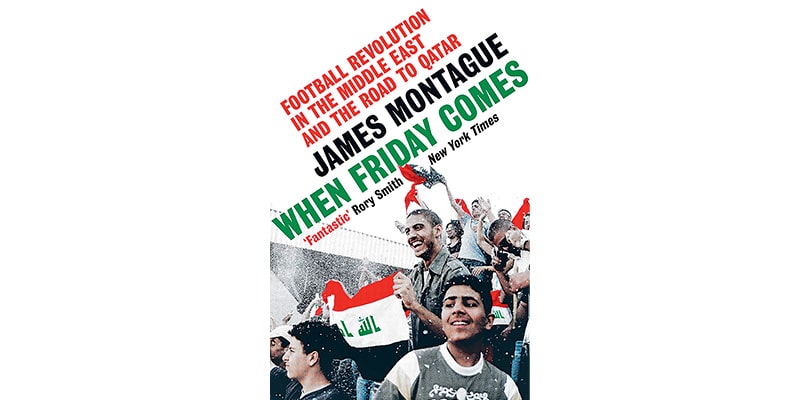
Penguin, £16.99
Reviewed by Rob Kemp
From WSC 425, October 2022
Buy the book
James Montague’s foray into Middle Eastern football has expanded somewhat after its first publication in 2008, reflecting the impact the region has had upon the global game. Since his first edition, a wild travelogue through some of the world’s scariest home grounds, much has changed. From the Arab Spring, rise of ISIS and civil wars in Syria and Yemen, to the “oil money” acquisitions in Manchester, Paris, Newcastle and others, revolutions have taken place. All of this to a backing track of World Cup stadiums being hammered into shape by migrant labour.
With impeccable timing and an impressive contacts book, Montague, a now-seasoned journalist and author, returns to interview fans, players, campaigners and damning witnesses. The result is a compelling read. Landmark moments in Arab world politics, many of which had catastrophic consequences, are recalled by football-loving men and women whose lives have been torn apart by them. Adding to the highlights of his first edition, which featured Israeli ultras and pistol-waving Lebanese club owners, Montague examines the impact uprisings have had on Middle East football and vice versa. Some stories are familiar: Egyptian fans forging alliances to topple a government, or the brutality that a dictator’s sons inflicted upon national team players. But other testimonies offer new, chilling, insight into what happens when fan culture clashes with regime rule. Evading his minders in Tehran one evening Montague meets with “Sara”, one of 35 Iranian women charged with offences against morality. Her crime? Trying to gain entry to a local derby dressed as a man. Sara praises the male players who’d publicly called for women to be allowed to attend matches, but then reveals how Iran’s rulers only relented when a 29-year-old fan, arrested for trying to watch her beloved Esteghlal team, set herself on fire outside the court.
While lamenting destroyed stadiums and disbanded teams from his previous visits, Montague also tracks down Hakeem al-Araibi, once a talented defender with a bright future in the game. Al-Araibi was accused of joining an attack on a Bahrain police station. Imprisoned, tortured and forced to flee his homeland he explains that he’d actually been playing in a league game – shown live on national TV – at the time of the incident. Despite oppression and exploitation encountered in almost every nation the author visits, it’s clear that football continues to unite many more people than it divides in this part of the world. It provides hope, community and an escape from the horrors of everyday life, and one is left feeling that these fans truly deserve a unifying, legacy creating World Cup.
Sadly, the $200 billion corporate spectacle taking place in Qatar isn’t likely to provide that. Montague closes this account with an evening on Doha’s streets among the emirate’s working class: Bangladeshi builders, taxi drivers and delivery men. Together they watch and play Qatar’s most popular participant sport… cricket.
This article first appeared in WSC 425, October 2022. Subscribers get free access to the complete WSC digital archive
Tags: 2022 World Cup, Egypt, Iran, Israel, Lebanon, Middle East, Qatar
